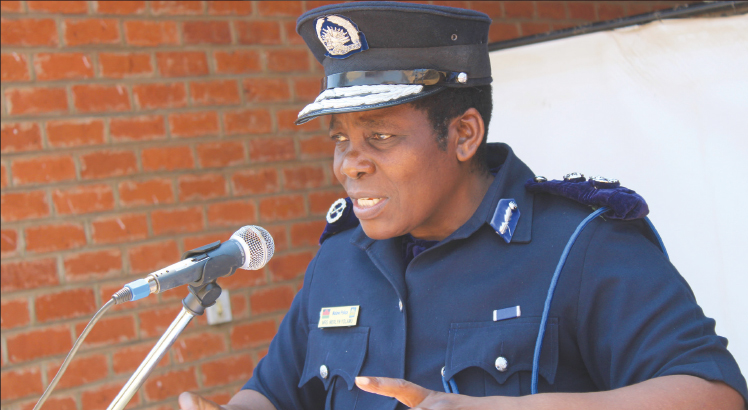Police given poor rating
Findings of an Afrobarometer survey show that many Malawians do not trust Malawi Police Service and that its officers conduct themselves in an unprofessional manner, including demanding bribes to “assist” the citizens.
In its Dispatch Number 581 compiled by researchers Joseph J. Chunga and Chikumbutso Herbert Manthalu, Afrobarometer, a non-profit and non-partisan Pan-African research network, said “fewer than three in 10” Malawians think the police usually operate in a professional manner and respect human rights.
The findings also indicate that a majority say the police stop drivers without good reason, use excessive force and engage in criminal activities, at least “sometimes”.
Reads the survey in summary: “Popular trust in the police is fairly low amid perceptions that many officers are involved in corruption. Many citizens report having to pay bribes to get police assistance or avoid problems with the police.

“Amid increasing feelings of insecurity, citizens continue to give the government poor marks on crime reduction.”
The survey findings, released on December 9 2022, further indicate that police are not seen to be trustworthy or effective in their profession.
Responding to a question on the conduct of police officers, about 45 percent of the respondents said police rarely or never operate professionally and respect people’s rights while 28 percent backed the law enforcers and 24 percent felt “sometimes they do”.
The survey also asked citizens who sought help from police during the previous year and found that 62 percent said it was difficult to get the assistance they needed while 40 percent said they had to pay a bribe to be assisted.
Further reads the survey report: “Many citizens find it difficult to get police assistance, have to pay bribes and are dissatisfied with the government’s performance on crime reduction.
“Negative views of the police have serious implications. Lack of trust and perceived unprofessionalism and abusive practices are threats to public compliance with the law and may contribute to cases of people taking the law into their own hands.”
In an interview yesterday, University of Malawi political scientist and Afrobarometer fellow Boniface Dulani said it has now become a tradition that police is always rated as the most corrupt.
He attributed the rating to “petty corruption activities” such as receiving bribes on the road when enforcing road traffic regulations.
“It’s disappointing that this story that police are rated the most corrupt has been there. This means they are failing to learn and end this vice which is really disappointing,” said Dulani.
But in an interview yesterday, Inspector General (IG) of Police Merlyn Yolamu said the service was doing its best to improve professionalism among the officers.
She said there are two separate sections within the service, namely spiritual integrity and counselling as well professional standard unit which strive to improve the conduct and professionalism of police officers.
Yolamu said: “On top of these units, we are not shielding anyone violating police code of ethics. When we find our officers committing crimes such as corruption, we don’t hesitate, but arrest and take them to court.”
Former IG Rodney Jose, in a separate interview, admitted that there were some bad apples within the service even when he was in charge.
He said it is wrong to condemn the entire police because of few individuals that indulge in corruption acts.
Said Jose: “Malawians should begin to give the benefit of the doubt to their own police, particularly after undergoing the reform processes.
“As a former Inspector General of police, I admit that it’s going to be a challenge for people to change their mindset and say the police are now reformed.”
Mzuzu University lecturer in governance, peace and security Aubrey Kabisala echoed Dulani’s sentiments that police seem not to learn from the survey to correct the wrongdoings within the service.
Afrobarometer conducts public attitude surveys on democracy, governance, economic conditions and related issues in Africa. It is a regional coordination of national partners in about 35 countries is supported by the Ghana Centre for Democratic Development, the Institute for Justice and Reconciliation in South Africa and the Institute for Development Studies at the University of Nairobi in Kenya. Michigan State University and the University of Cape Town provide technical support to the network.






Your article helped me a lot. what do you think? I want to share your article to my website: